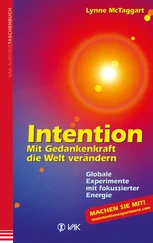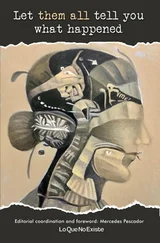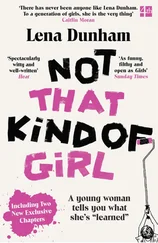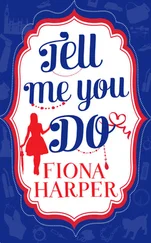Doctors and medical authorities contribute to this view of infallible medical science. Whenever discussing its own track record, especially against that of alternative treatments, medicine stakes out the moral high ground, flying the territorial flag of established scientific fact. In mounting an attack on alternative medicine, a British Medical Journal editorial self-congratulatingly trumpeted medicine’s ‘record of objective evaluation of claims.’ 1
By the same token, orthodox medicine denounces alternative medicine as not following suit. The Royal College of Physicians and the Royal College of Pathologists once denounced alternative treatments for allergies as unscientific, warning that ‘until the methods have been evaluated by reputable, randomized, double-blind, placebo-controlled trials they cannot be accepted into routine clinical practice.’ 2
Our faith in medical science is so ingrained that it has become woven into the warp and woof of our daily routine. In any average day in Britain, a family may place its entire future in the hands of medical advance. For a pregnant mother, the result of prenatal tests may determine whether she carries her pregnancy to term. Her child may be given his vaccine and her husband his blood-pressure lowering drugs on the premise that this medicine will prevent them from getting future disease. Medical tests determine whether we can have children, continue working, have operations, are eligible for insurance, require caesareans, or, as with an HIV test that comes back positive, are shunned as pariahs. It is doctors with their miracle treatments, we believe, who will deliver us from evil, which, these days, is not temptation so much as the frightening randomness of disease.
But much as we cling to the notion of science as a force of redemption, our faith is misplaced. The truth of it is that medical science actually isn’t working too well. The United States and Britain are losing the ‘War on Cancer’. 3Despite state-of-the-art mammogram screening equipment and surgical techniques, breast cancer mortality rates stubbornly refuse to fall. Despite millions of people following low-fat diets, heart disease is still the biggest killer in the West. With all the fancy chemicals and computerized testing equipment we have to hand, asthma, arthritis, diabetes, cancer – virtually all the chronic degenerative diseases known to mankind – are thriving, and medicine hasn’t affected their incidence one tiny bit.
One glance at the statistics shows that, except in the case of getting run over or needing an emergency caesarean, orthodox Western medicine not only won’t cure you but may leave you worse off than you were before. In fact, these days, scientific medicine itself is responsible for a good percentage of disease. If you’re in hospital, there’s a one in six chance that you landed there because of some modern medical treatment gone wrong. 4Once you get there, your chances are one in six of dying in hospital or suffering some injury while you’re there. Since half this risk is caused by a doctor’s or hospital’s error, you’ve got an 8 per cent chance of being killed or injured by the staff. 5At last count, about 1.17 million Britons end up in hospital each year because of doctor error or a bad reaction to a drug. In the United States, if we extrapolate the results of a 1984 study, over one million Americans are being injured in hospital every year, and 180,000 die as a result. 6Recently, the Journal of the American Medical Association , the official organ of the primary organization representing physicians in America, recently admitted that doctor-induced disease is the third leading cause of death in America, responsible for a quarter of a million deaths per year. 7Dr Allen Roses, the only worldwide vice-president of genetics at GlaxoSmithKline (GSK), shocked the world by recently admitting that 90 per cent of his company’s – or any other drug company’s products – don’t work on the majority of patients. 8In Britain, the latest statistics are that 10,000 Britons die every year from a reaction to a drug, and one in every 16 patients is put in hospital because of an adverse reaction to everyday drugs – even aspirin. To put the magnitude of the problem in perspective, the entire population of a city the size of Birmingham is put in a hospital bed every year by medical error. If you live in the US, where about 40,000 people are shot dead every year, you are nevertheless three times more likely to be killed by a doctor than by a gun. 9
This appalling track record has nothing to do with incompetence or lack of dedication. Most doctors are extremely well-intended, and probably a majority are highly competent in what they’ve been taught.
The problem isn’t the carpenter, but his tools. The fact is that medicine is not a science, or even an art. Many of your doctor’s arsenal of treatments don’t work – indeed, have never been proven to work, let alone to be safe. It is a false science, built upon conjuring tricks, supposition and blind preconception, whose so-called scientific method is a vast amount of stumbling in the dark.
Many of the treatments we take for granted – for breast cancer or heart surgery, even treatments for chronic conditions such as arthritis or asthma – have been adopted and widely used without one single valid study demonstrating that they are effective or safe. The so-called ‘gold standard’ respected by medical scientists as the only scientific proof of the true worth of a drug or treatment is the randomized, double-blind, placebo-controlled trial – that is, a study in which patients are randomly assigned to receive either a drug or a sugar pill, with neither researchers nor participants aware of who is getting what. Nevertheless, despite the fact that thousands of studies are conducted every year, very few of the treatments considered to be at the very cornerstone of modern medicine have been put to this most basic of tests – or, indeed, to any test at all.
For all the science-speak in medicine about risk-factors and painstakingly controlled data, the stringent government regulation, the meticulous peer review in professional literature – for all the attempts to cloak medicine in the weighty mantle of science – a good deal of what we regard as standard medical practice today amounts to little more than 21st-century voodoo.
In their own literature, medical authorities openly acknowledge this fact. New Scientist once announced on the cover of one issue that 80 per cent of medical procedures used today have never been properly tested. 10
Medicine as it is practised today is largely a conspiracy of faith. Probably because of the miracle of drugs such as antibiotics, doctors have come to believe that their little black bag ought to be filled, in effect, with magic. The late medical critic Dr Robert Mendelsohn was one of the first to liken modern medicine to a church, with doctors its high priests following the teachings with blind faith: ‘Modern Medicine is neither an art nor a science. It’s a religion,’ he wrote in his book, Confessions of a Medical Heretic (Contemporary Books), ‘just ask why? enough times and sooner or later you’ll reach the Chasm of Faith. Your doctor will retreat into the fact that you have no way of knowing or understanding all the wonders he has at his command. Just trust me. ’ 11
Doctors believe so fervently in the power of their tools that they are willing to suspend all reasonable scepticism about current and new medical treatments – so long as these treatments fit in with orthodox medical practice. Most doctors and researchers operate on the assumption of a priori benefit, whether or not a given remedy has actually been proven: we know what we’re doing is right . Enthusiasm for statins, the current favourite for high cholesterol, is so great, for instance, that doctors are willing to ignore the grossest of scientific lapses in safety testing in order to promote what is looked upon prima facie as a good thing. We know what we’re doing is right .
Читать дальше
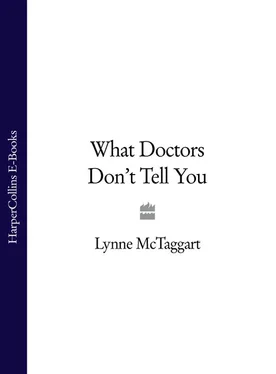
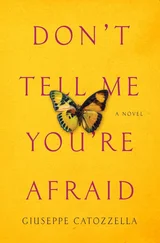


![Ally Carter - [Gallagher Girls 01] I'd Tell You I Love You But Then I'd Have to Kill You](/books/262179/ally-carter-gallagher-girls-01-i-d-tell-you-i-lo-thumb.webp)
